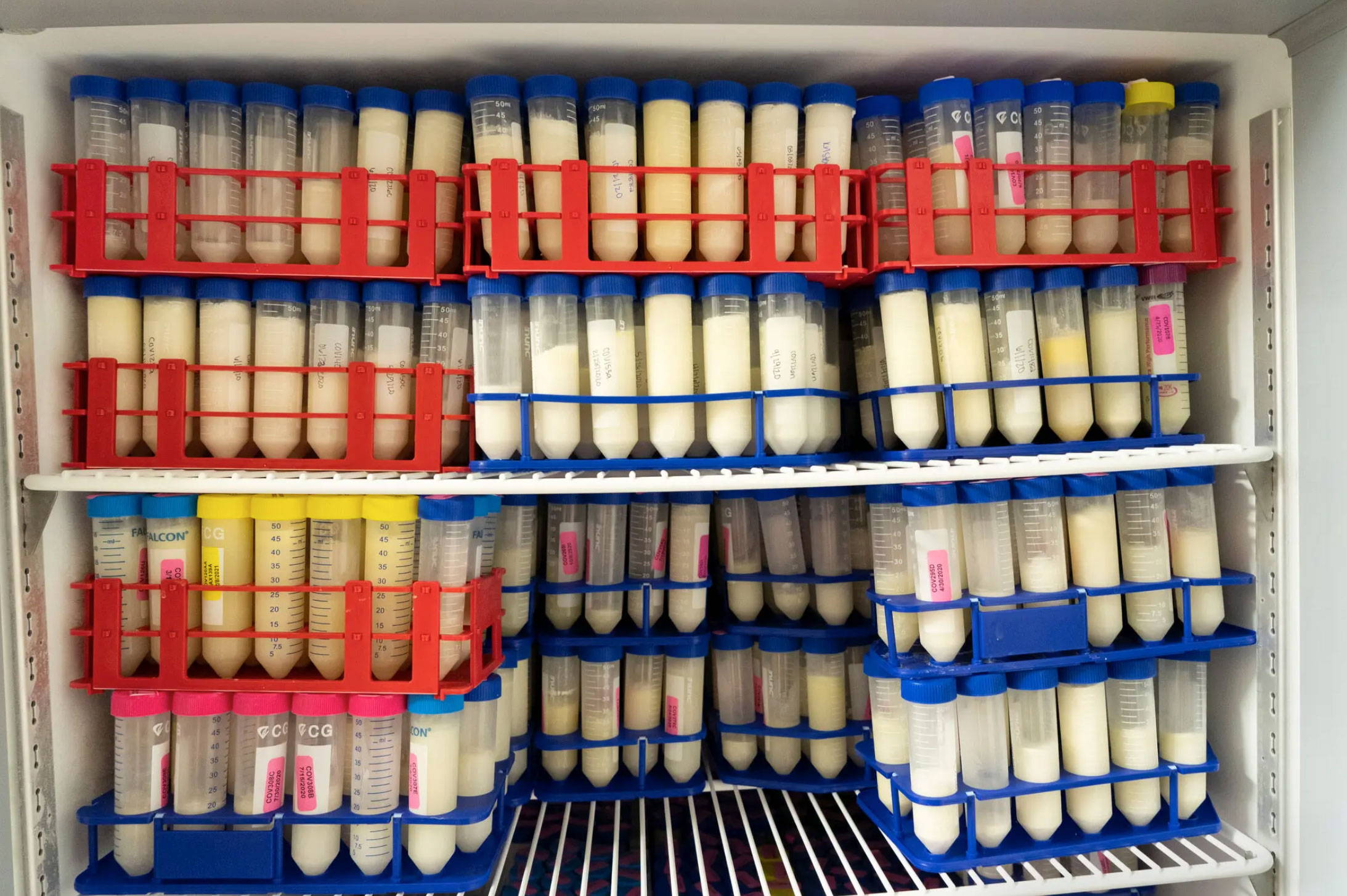By Alanna Iacovetti
Breastmilk: A Natural Immune Booster
As we all know, breastmilk is magical. Just one drop contains more than one million white blood cells, working to fight infections and diseases. Human milk has long been known to protect babies against:✔ Pneumonia
✔ Diarrhea
✔ Ear infections
✔ Asthma
✔ Respiratory infections
Does Breastfeeding Protect Against COVID-19?
“The risk of COVID-19, acute otitis media (ear infections), or headaches in children is amplified for those who were never breastfed. Among never-breastfed children, 1 in 25 tested positive for SARS-CoV-2; among breastfed children, only 1 in 60 tested positive.”
In other words, breastfeeding may lower the risk of COVID-19 in infants.

James Estrin, The New York Times
How Does Breastmilk Provide COVID-19 Protection?
Mothers who have been previously infected with COVID-19 or vaccinated produce protective antibodies in their breastmilk. These antibodies pass to their babies, potentially providing additional immunological protection.
Because of this, more parents are choosing to extend their breastfeeding journey in hopes of giving their little ones added protection.
Why Some Parents Are Extending Breastfeeding
✔ Many were able to do so during early lockdowns, citing immunological protection as a primary reason.
✔ The ease of working from home made extended breastfeeding more possible for some families.
Some Moms Even Attempted Re-Lactation After Vaccination
According to The New York Times, some mothers who had already begun weaning even tried to restart lactation after receiving the COVID-19 vaccine. This is an incredibly complex and challenging process—but it highlights how strongly many parents believe in breastmilk’s immunological benefits.
Every Feeding Journey Looks Different—And That’s Okay
While extended breastfeeding is an option for some, we know that every parent’s situation is different.
✔ Breastfeeding
✔ Pumping
✔ Combo-feeding
✔ Formula feeding
Further Reading on Breastmilk & COVID-19
📌 Can Mother’s Milk Help Fight COVID? New Evidence Suggests ‘Yes’
📌 Human Milk and COVID-19 Antibodies – Another Win for Breastfeeding?
Looking for safe, convenient breastmilk storage solutions? The Ceres Chill Breastmilk Chiller keeps your milk safe for up to 20 hours—perfect for pumping moms balancing work & breastfeeding.
